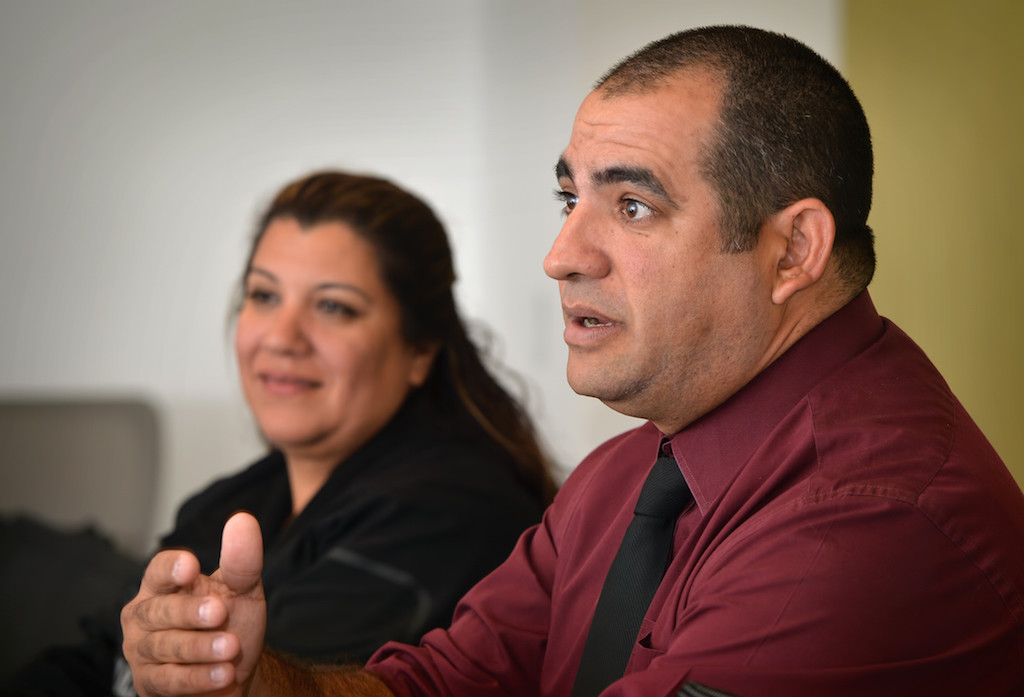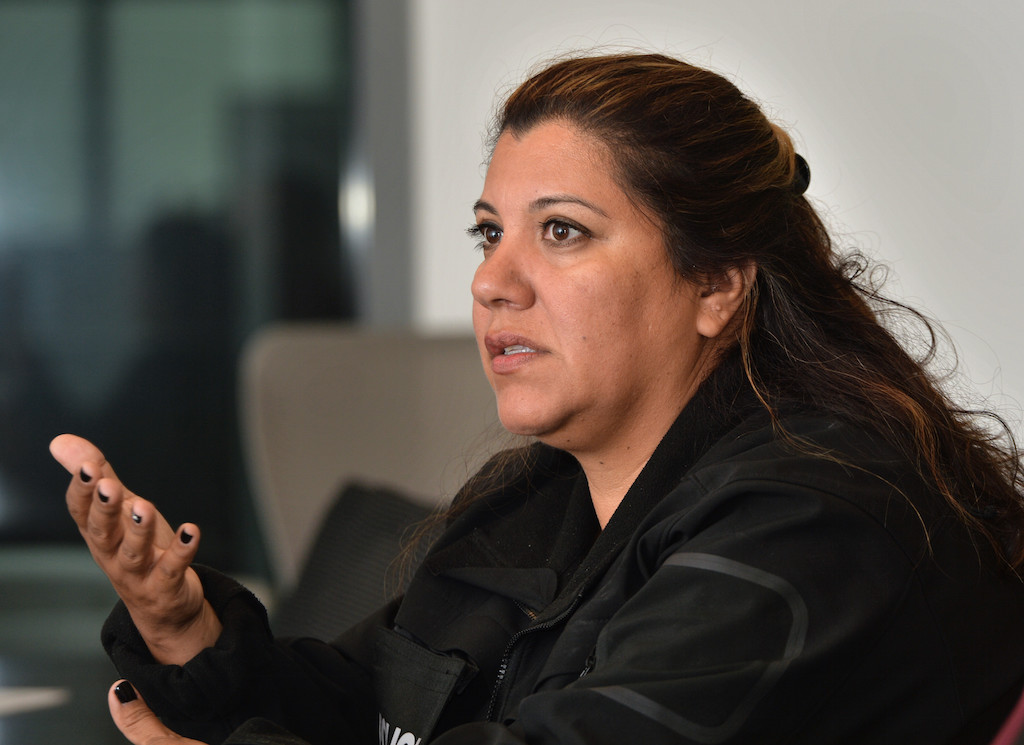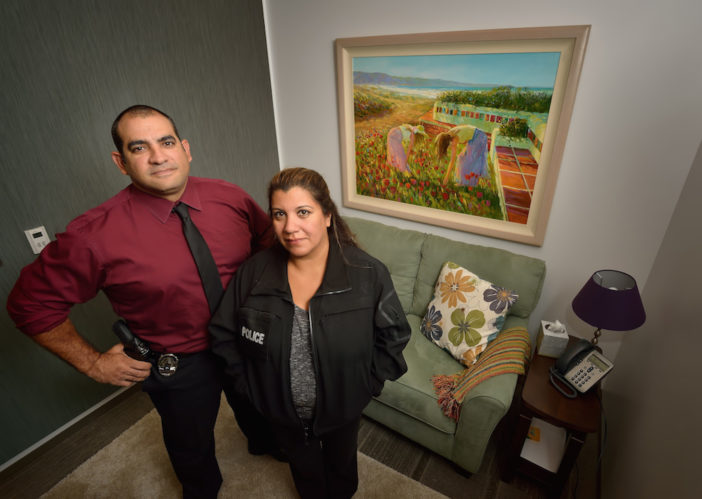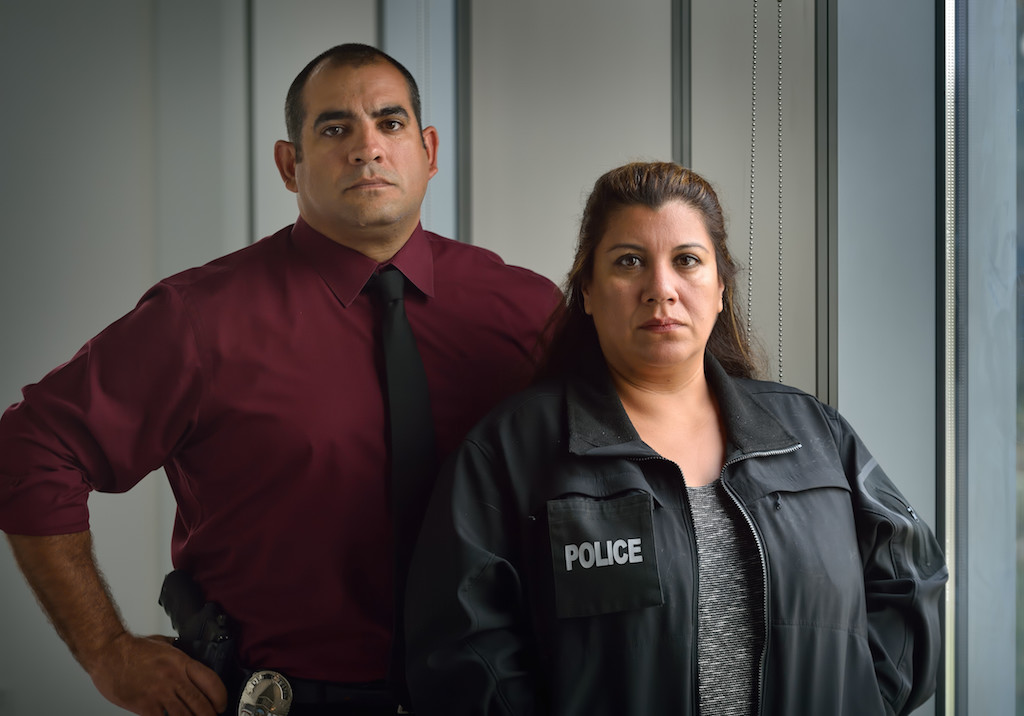The neighbors called because they heard shouting.
When Westminster Police responded to the domestic violence call, the scene was unusually calm.
The couple’s four children weren’t crying or yelling, and their father had left the home.
Their mother was the only indication that there was anything to even call about that January day.
The woman was on the ground, brutally beaten and floating in and out of consciousness.
Police are not releasing too many details about this incident, in part, to protect the victim. Oversharing specifics of the case could unintentionally identify her.
But they also want to keep some information close because they still looking for the man who beat his wife badly enough that she had to be hospitalized and undergo surgery to fix the trauma.
Across Orange County, police respond to some version of these calls every day. A husband shoved his wife, a mother struck her children, a wife threw something at her spouse — the list of scenarios goes on.
In honor of National Domestic Violence Awareness Month, Westminster police are reminding victims of abuse that police aren’t there only to investigate and make an arrest — they also want to help families heal.
“These victims are not just a name on paper,” said Det. Rafaelo Papale. “We take pride in what we do and we take this very seriously.”

Westminster PD Detective Rafaelo Papale, right, and Detective Adriana Villezcas, behind him, talk about their experiences working with domestic violence and and what the department is doing to help the victims.
Photo by Steven Georges/Behind the Badge OC
Westminster was the first agency in Orange County to approach domestic violence cases with a targeted team and multi-faceted approach.
They formed the Family Protection Unit in the early 1990s, which put an emphasis on ensuring victims of domestic violence received services they needed, while holding abusers accountable.
The PD partnered with several nonprofits, such as the Interval House, to provide victims with shelter and simple things including calling cards, motel vouchers and access to much-needed services.
A district attorney worked in house alongside investigators to prosecute cases, and officers received specialized training on how to better serve domestic violence victims.
Over the years, the program has evolved and officers were equipped with new tools to work these kinds of cases.
Each officer was issued a digital camera to document evidence when he or she arrived on scene, and given cards that explained Marsy’s Law — also known as the Victim’s Bill of Rights — to educate victims.
Backpacks filled with donated items, such as a journal and toiletries, were also available to victims to offer some kind of comfort.

A Crime Survivors kit the Westminster PD keeps on hand to help victims of domestic violence and includes common household items they may be in need of after hurriedly leaving their home.
Photo by Steven Georges/Behind the Badge OC
In 2012, the nonprofit Zonta donated funds to create a “soft room” for crime victims at the department.
The room, outfitted with a sage-green couch, stuffed animals for children, a brown plush chair and a painting depicting women picking flowers, is intended to make a victim feel safe.
All of these things combined make for a victim-centered approach to domestic violence cases.
“We are very committed to investigating these cases and to helping these families,” said Westminster Cmdr. Cameron Knauerhaze. “We take a very strong stance against domestic violence and will be there for any victim and their family.”
Papale and Det. Adriana Villezcas now spearhead the department’s domestic violence program and the mission is the same as when the Family Protection Unit was founded more than 20 years ago: put the bad guys in jail and help families mend.
“Ultimately, we want to see justice served,” Papale said.
Their work is not without its challenges.
Papale and Villezcas, who both have children, are often thrust into situations where they have to separate their emotions as parents from their duties as investigators.
“When there are children involved, that is the hardest thing,” Villezcas said. “For the victim who wants to forgive and forget, we try to get through to them and tell them they have to be strong for their children. Their children can’t grow up in that environment.”
Added Papale: “It’s tough to try and get some of these victims to understand there is another way of living, and they don’t have to live in fear.”
In some cases, families get the help they need whether that means an abuser going to therapy or a victim starting a new life.
In other cases, the detectives find themselves working with the same victim many times.
“Domestic violence is a dangerous cycle and it’s very difficult to have victims see that,” Villezcas said. “They want to forgive; they want to believe it’s not going to happen again.”
Sometimes, abuse follows a pattern — starting with verbal attacks that progress to physical confrontations.
“I would like victims to know that verbal abuse is never OK because it’s going to escalate,” Villezcas said. “They need to get out or get help.”

Detective Adriana Villezcas talks about her experience working with domestic violence and and what the department is doing to help the victims.
Photo by Steven Georges/Behind the Badge OC
Then there are the cases that don’t seem to fit the mold, including the mother of four who was knocked unconscious by her husband on that January day.
“It was eerie to hear her tell me, ‘I never imagined this man would’ve done this or had the capability to do this’,” Villezcas said. “I believe it. I believe when she tells me she never saw it coming.
“I don’t think that they will really get any closure until we find this guy.”
So the detectives keep doing what they do on every incident that crosses their desk.
They check in with the family. They work the case. And they look forward to the day the suspect will be held accountable.
“There is no doubt, we will find him,” Papale said.
The detectives encourage residents to call the police if they are victims of abuse or suspect a neighbor or friend may be a victim of abuse.
“A lot of the time, people know about abuse but don’t want to get involved,” Papale said. “But if you see something or hear something, report it. People can always call us anonymously.”
For more information and resources visit the Domestic Violence Awareness Project’s website at nrcdv.org
 Behind the Badge
Behind the Badge




